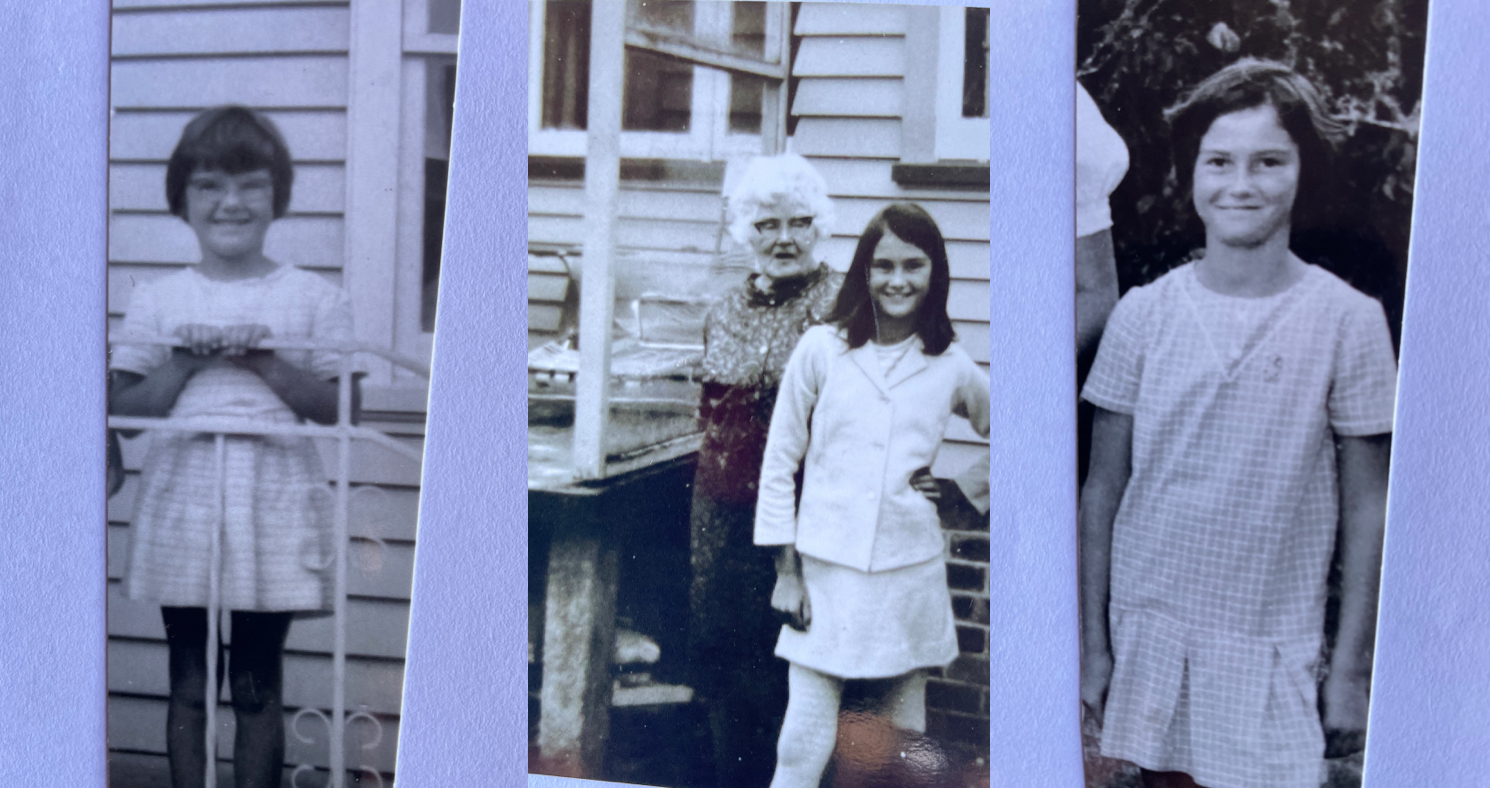
By Dianne Romain
People often ask if I have personal experience that inspired me to write ‘The Trumpet Lesson’. In a sense, yes, but not because I, myself, relinquished a baby. I have never had a child.
I had been writing stories about the members of a fictional writing group, but I needed to connect those stories. Then, it came to me: I could weave them together by having one member of the group be the actual author of all the other members’ stories. The rub would be that she herself had never told her own story—the story of her relinquishing a baby in a closed adoption decades before.
I began shaking, imagining the feelings of that woman. I knew then that hers was a story I had to write. Eventually I removed the writing group from my novel, but the woman who had remained silent about the loss of her baby stayed with me. She became Callie Quinn of ‘The Trumpet Lesson’.
Callie and I have some things in common. Like Callie, I went to high school in the early 1960s in a rural Missouri town where teen sex was considered shameful. There was no sex education. No counseling about how to make choices about sexual intimacy. No information about how to prevent pregnancy. Abortion was unmentionable.
But, of course, teens engaged in sexual relations, some resulting in pregnancies. There were hasty marriages and girls who went away. At one point during my junior year, I thought I was pregnant. My boyfriend’s parents wanted us to relinquish the baby. My father expected the boy to marry me. I couldn’t imagine giving up a baby, but raising a baby with my boyfriend seemed surreal. Fortunately, I did not have to choose. I started my period a few days after we told our parents. I’ve always wondered how my life would have turned out if my period had not come.
To better understand Callie and other members of the adoption triad in ‘The Trumpet Lesson’, I talked with friends about their adoption experiences and I read books, including Ann Fessler’s ‘The Girls Who Went Away’ and ‘The Adoption Reader‘, edited by Susan Wadia-Ells. As I had imagined, many women who, as teens, had relinquished their babies lived with their loss for decades in silence.
In ‘The Trumpet Lesson’ when Callie Quinn became pregnant as a teenager, her outraged father, with her mother’s acquiescence, insisted that no one know—and Callie complied. She went away, and she gave up her baby. She did it to protect the baby’s father—a black teen—from the era’s racist violence. When Pamela, a trumpeter whose music flows from her heart, enters Callie’s life, Callie begins to dream of opening her own heart. But shame and unresolved grief keep her from speaking of her child. To speak Callie must confront the deepest reasons for her silence–the ones she conceals even from herself.
The adoption stories in ‘The Trumpet Lesson’ illustrate how social stigmas threaten personal integrity and undermine relationships. Parental shame about teenage sex led to Callie losing her child. Callie’s naïveté about sexual relations contributed to her becoming pregnant in the first place. Callie is at odds with herself over speaking of her child. Not speaking saves her from possible rejection for having done something considered shameful, but it also prevents her from developing truly close relationships, ones in which she would receive comfort for her loss. Wishing to have a “normal” family, Pamela’s adoptive mother pretended Pamela was her biological child, undermining Pamela’s trust in her when, as a teen, Pamela learned she was adopted.
Social attitudes have changed from the early 1960s. Open adoptions started becoming an option in the 1970s and are now offered by a majority of adoption agencies in the United States. A woman who cannot raise her child no longer must lose her baby. She can share in her child’s life. She can also find supportive counselors, birthparent retreats, and online groups. Adoption, nonetheless, remains an unattractive option for most women who become unintentionally pregnant.

Comprehensive sex education leads to fewer unplanned pregnancies and to better relationships. That’s why I am donating a percentage of royalties earned from sales of ‘The Trumpet Lesson’ to an organization that offers sex education. I selected Mujeres Aliadas, a women’s health nonprofit in Erongarícuaro, a village in Michoacán, Mexico, where I lived years ago. Mujeres Aliadas has reached more than 30,000 women and more that 5,500 adolescents in community workshops about sexual and reproductive health and rights. Besides offering educational workshops, Mujeres Aliadas trains midwives and provides a women’s health clinic and birthing center. You can learn more about Mujeres Aliadas here: http://www.mujeresaliadas.org/
During my senior year in high school my father lost his business, became deeply depressed, and eventually moved away, leaving my mother in financial and emotional distress and with two of my younger siblings still in grade school and another only three years old. I believe now that I resonated so with Callie’s story because of how sad and helpless I felt going away to college, leaving my younger siblings in an economically and emotionally precarious situation. Writing ‘The Trumpet Lesson’ helped me come to terms with my losses and regrets. May reading it help others with theirs.

Dianne Romain grew up in rural Missouri and studied philosophy at the University of Missouri at Kansas City. After completing her PhD in Philosophy at UC Berkeley, she taught feminist ethics and philosophy of emotion at Sonoma State University and published Thinking Things Through, a critical thinking textbook. While in California, she practiced fiction writing techniques in a women’s writing group. In Guanajuato, where she lives with novelist Sterling Bennett, she took up the trumpet as research for her debut novel, The Trumpet Lesson. Her current writing projects set in Guanajuato include short stories and a second novel.
You can follow Dianne on Instagram, Facebook, and Twitter. Visit her at https://dianneromain.com/.

















One thought on “Novel ‘The Trumpet Lesson’ Explores How Societal Attitudes About Teen Pregnancy, Race, & Adoption Affect Personal Integrity”